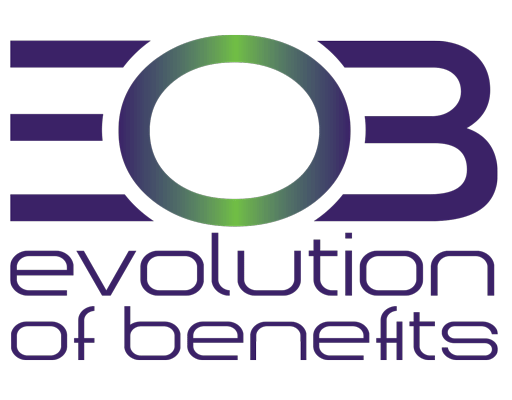Know Your Benefits: Family-building Benefits

FamOver the past decade, there have been shifts in the path to parenthood as many people turn to in vitro fertilization, surrogacy and egg freezing. Routes like these may share some of the same challenges, but how individuals build their families is ultimately unique to them. Although advanced technology provides more opportunities to be a parent, there are still hurdles to overcome often related to finances and access.
- Fertility treatment.
- Donors and surrogacy.
- Adoption.
Family-building benefits are becoming increasingly popular since they inclusively support the complex ways individuals and couples build their families. Benefits may cover options including fertility drugs, medical treatments and procedures, surrogacy, and adoption.
Reach out to Evolution of Benefits for all your employee communication needs, including enrollment guides, video messaging, presentations, and more.
Learn more and take action – view the full newsletter below.
Posted on September 30, 2021 by Evolution of Benefits
Understanding Prescription Drug Plans and 5 Ways to Lower Your Health Care Costs

Understanding your drug plan and prescriptions can help you save money, stay healthier and receive greater satisfaction from your health benefits. Here are some things to consider when making sense of your prescription drug plan:
- Decide between generic or brand-name drugs.
- Follow directions completely.
- Talk to your doctor.
The continuing trend of rising health care costs can significantly impact your budget. While it’s difficult to control all the contributing factors of growing costs, educating yourself as a health care consumer is one way to help manage or lower your spending.
Reach out to Evolution of Benefits for all your employee communication needs, including enrollment guides, video messaging, presentations, and more.
Learn more and take action – view the full newsletter below.
Posted on September 30, 2021 by Evolution of Benefits
Practice Good Oral Hygiene – Take Charge of Your Health!

It’s important to practice good oral hygiene every day because teeth and gum issues if left untreated, can pose serious problems to the rest of your body. For example, poor oral hygiene can lead to diabetes, heart disease, and more.
Use the following tips to make sure you’re taking the right steps in boosting your oral health:
- Brush your teeth properly. Brushing your teeth at least two times per day is very important for your oral health. Although it can be easy to blow it off before bed, think about items like germs and plaque that build up during the day.
- Floss daily. In many cases, flossing can be just as important as brushing your teeth. To properly remove food debris and plaque, make sure you floss between your teeth and below the gumline to increase gum health and prevent diseases like gingivitis.
- Eat a healthy diet and limit foods with added sugars. Unhealthy foods, such as foods with sugar, can lead to issues like cavities and gum disease. An easy way to avoid these issues is to tighten up your diet.
- Visit your dentist regularly. The general recommendation is to see a dentist every six months. They’ll be able to find potential issues such as cavities and other oral diseases.
- Avoid tobacco use. Not only is smoking damaging to your oral health, but it can be very harmful to your physical health.
- Smoking and other tobacco products can lead to gum disease, tooth loss and oral cancer.
Reach out to Evolution of Benefits for all your employee communication needs, including enrollment guides, video messaging, presentations, and more.
Learn more and take action – view the full newsletter below.
View and download the latest Take Charge of Your Health Newsletter
Posted on September 28, 2021 by Evolution of Benefits
3 Strategies for Reducing Health Benefits Costs in 2022 and Open Enrollment 2022: Benefit Notices

According to a PricewaterhouseCoopers (PwC) report, medical costs are projected to increase 6.5% in 2022. This is about average for the past decade; although, it is slightly lower than the 7% increase projected this year (as more spending goes toward the COVID-19 pandemic).
- Control Drug Spending
- Encourage Active Benefits Participation
- Embrace Virtual Health Options
Employers that sponsor group health plans should provide certain benefit notices in connection with their plans’ open enrollment periods.
Reach out to Evolution of Benefits for all your employee communication needs, including enrollment guides, video messaging, presentations, and more.
Learn more and take action – view the full newsletter below.
Posted on September 28, 2021 by Evolution of Benefits
IRS Issues Employer Guidance for Reporting 2021 FFCRA Leave

Employers are required to report qualified 2021 FFCRA leave wages to employees on either a 2021 Form W-2, Box 14, or in a separate statement provided with the Form W-2.
Important Dates
- March 11, 2021 – American Rescue Plan Act extended tax credits for employers who voluntarily continue FFCRA leave.
- Sept. 7, 2021 – IRS issued Notice 2021-53 about employer reporting of 2021 FFCRA leave wages.
- Sept. 30, 2021 – American Rescue Plan Act’s tax credit
Employees may take leave Only employers claiming tax credits for FFCRA leave wages must comply with the reporting requirements.
Posted on September 28, 2021 by Evolution of Benefits
7 Ways to Maintain Workplace Safety Despite the Delta Variant

The coronavirus Delta variant has caused an increase in active coronavirus cases nationwide. Many employers wonder how the Delta strain will impact their return-to-work plans or their ability to keep employees, clients, and vendors safe.

Posted on September 28, 2021 by Evolution of Benefits
Illinois Domestic Violence Leave to Cover All Victims of Violence

The Illinois legislature expanded the state law that allows employee leave for domestic violence victims.
- Victims of all violent crimes, as specified in the law, are now allowed unpaid leave from work, along with their family and household members.
- Required annual leave amounts range from four to 12 weeks, depending on employer size.
- Notice and certification rules apply.
Employees may take leave for medical treatment, recovery, counseling, victim services, and planning for safety and economic security.
Posted on September 24, 2021 by Evolution of Benefits
President Biden Offers Additional Financial Support to Small Businesses

In addition to these efforts combating the surge caused by the Delta variant, the Biden Administration has called upon the Small Business Association (SBA) to increase financial support for small businesses.
Specifically, the SBA is strengthening its COVID-19 Economic Injury Disaster Loan (EIDL) program by increasing available loan amounts from $500,000 to $2 million.
Read on for more details related to this latest EIDL expansion.
Posted on September 17, 2021 by Evolution of Benefits
Premium Surcharges for Nonvaccinated Individuals

Under federal law, employers generally may provide incentives to employees for receiving the COVID-19 vaccine (or penalize employees for failing to get vaccinated).
However, this type of strategy would likely need to be structured as a group health plan wellness program.
Employers may need to make exceptions for employees who are unable to get vaccinated due to a disability or a strongly held religious belief.
Click here to learn more and download the latest Compliance Bulletin
Posted on September 17, 2021 by Evolution of Benefits
What President Biden’s Vaccine Mandate Means for Employers

President Joe Biden’s administration is continuing its efforts to curb the COVID-19 pandemic and the spread of the deadly coronavirus Delta variant. Recently, the White House ordered all federal workers and contractors to get vaccinated against COVID-19. Now, the government is imposing a similar requirement on private employers. The move is estimated to affect over 80 million private-sector workers.
The Occupational Safety and Health Administration (OSHA) has been tasked with drafting an emergency temporary standard (ETS) and will announce more specifics in the coming weeks. Soon, employers with 100 or more employees will need to adapt their vaccine policies to comply with these new rules.
This article discusses this latest vaccination mandate, including its scope and how it may affect employers.
Note: This is a developing issue. Information will be updated here and in subsequent resources as more details are released.
Posted on September 17, 2021 by Evolution of Benefits
Client and Employee Resources
![]() The more your employees understand your benefit plans the more they become educated, empowered consumers. The programs you provide will also gain an enhanced value.
The more your employees understand your benefit plans the more they become educated, empowered consumers. The programs you provide will also gain an enhanced value.
As your strategic partners in employee benefits, we can provide multiple avenues of ongoing support, including:
- Employee Meetings (English and Spanish)
- Webcasts
- Payroll Stuffers
- Poster Campaigns
- Newsletters
Recent Posts
- Career Elevator: The Importance of Peer-to-Peer Praise (November) November 27, 2024
- In the Loop – November November 21, 2024
- Benefits and Me: Maximizing Your Open Enrollment (November) November 19, 2024
- HR Brief – OSHA Proposes Heat Injury and Illness Prevention Standard (November) November 14, 2024
- Mental Health Minute (November) November 7, 2024
- American Diabetes Month (November) November 6, 2024
- Benefits Buzz – Final Forms and Instructions for 2024 ACA Reporting Now Available November 4, 2024
- Live Well, Work Well – Fall Into Mindfulness (November) November 4, 2024
- Recipe of the Month – Beef and Bean Chile Verde (November) November 3, 2024
- Compliance Tracker – October November 1, 2024
Newsletter and Article Categories
E-Verify is a web-based system that allows enrolled employers to confirm the eligibility of their employees to work in the United States. Click the image below to begin.




















